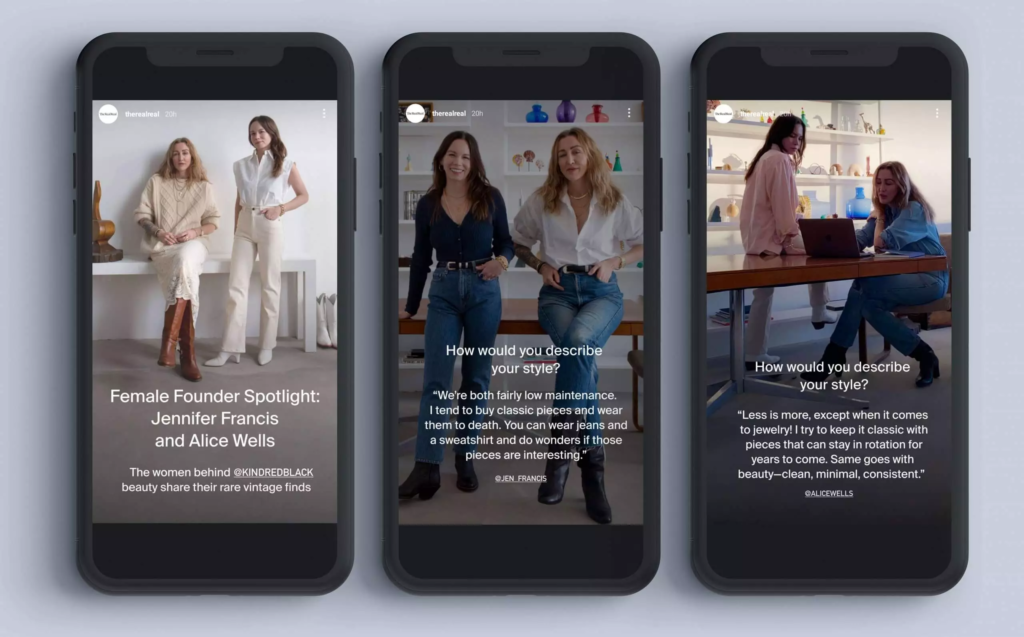
Storytelling in Digital Marketing has become an essential tool for brands looking to connect with their audience on a deeper level. In a world saturated with information, captivating narratives can help businesses stand out and build lasting relationships. By weaving compelling stories into their marketing campaigns, brands can evoke emotions, inspire action, and create a memorable experience for their customers.
The Power of Storytelling in Digital Marketing
Storytelling goes beyond simply telling a tale; it’s about creating an emotional connection with your audience. When people feel a sense of empathy or resonance with a story, they are more likely to engage with your brand and become loyal customers. Here’s how storytelling can benefit your digital marketing efforts:
Builds Trust and Credibility: Authentic storytelling helps establish trust between your brand and your audience. When people see your brand as a relatable and human entity, they are more likely to believe in your products or services.
Enhances Engagement: Stories can evoke emotions and create a memorable experience, leading to increased engagement and sharing.
Differentiates Your Brand: In a crowded marketplace, storytelling in digital marketing can help your brand stand out from the competition. By telling unique and compelling stories, you can position your brand as a thought leader and innovator.
Improves Customer Retention: When customers feel a connection to your brand through storytelling, they are more likely to remain loyal and continue to support your business.
Essential Elements of Effective Storytelling in Digital Marketing
To create compelling stories that resonate with your audience, consider these essential elements:
Know Your Audience: Understanding your audience’s values, aspirations, and pain points is crucial for crafting stories that resonate with them.
Identify a Central Theme: Every great story has a central theme or message. This theme should align with your brand’s values and resonate with your audience.
Create Engaging Characters: Your characters should be relatable, memorable, and embody the values of your brand.
Develop a Compelling Plot: The plot should be well-structured, with a clear beginning, middle, and end. Use conflict and resolution to keep your audience engaged.
Show, Don’t Tell: Instead of simply stating facts, use vivid descriptions and dialogue to show your audience the story.
Use Emotion: Stories that evoke emotions are more likely to be remembered and shared. Aim to create a sense of empathy, inspiration, or humor.
Align with Your Brand Values: Ensure that your storytelling aligns with your brand’s values and mission. This will help reinforce your brand identity and build trust.
Storytelling Techniques to Try
Here are some storytelling techniques you can incorporate into your digital marketing campaigns:
Customer Testimonials: Share real-life stories of how your products or services have positively impacted your customers’ lives.
Case Studies: Highlight specific examples of your company’s successes or innovations.
Behind-the-Scenes Stories: Give your audience a glimpse into your company’s culture and values.
User-Generated Content: Encourage your customers to share their own stories related to your brand.
Interactive Storytelling: Use interactive elements like quizzes, polls, or games to engage your audience and encourage participation.
Implementing Storytelling in Your Digital Marketing Strategy
- Content Marketing strategies like Blog posts, articles, and long-form content are perfect vehicles for in-depth storytelling. Use these formats to share customer success stories, behind-the-scenes glimpses of your brand, or educational narratives that position your brand as a thought leader.
Example: Airbnb’s blog often features stories of hosts and travelers, showcasing the unique experiences and connections made through their platform.
- Social Media Platforms like Instagram, Facebook, and TikTok are ideal for bite-sized storytelling. Use a mix of visuals, captions, and short videos to tell micro-stories that capture attention and encourage engagement.
Tip: Experiment with Instagram Stories or TikTok challenges to create interactive narratives that involve your audience.

- Video Marketing Video is perhaps the most powerful medium for storytelling in the digital age. From YouTube documentaries to short-form videos on social media, visual storytelling can captivate audiences and convey complex messages quickly.
Example: Nike’s “Dream Crazy” campaign featuring Colin Kaepernick told a powerful story of perseverance and standing up for one’s beliefs, resonating with millions worldwide.
- Email Marketing Use email sequences to tell a story over time, building anticipation and nurturing leads through a narrative journey.
Tip: Create a welcome email series for new subscribers that introduces your brand story in chapters, keeping readers engaged and looking forward to the next installment.
Mastering Email Marketing for Customer Retention – A Secret Guide
- User-Generated Content Encourage your customers to become storytellers for your brand. User-generated content adds authenticity and creates a sense of community around your products or services.
Example: GoPro’s entire marketing strategy revolves around stories told by users through their cameras, showcasing incredible adventures and everyday moments alike.
Measuring the Impact of Your Storytelling Efforts
To ensure your storytelling in digital marketing is effective, track these key metrics:
- Engagement rates (likes, comments, shares)
- Time spent on page
- Click-through rates
- Conversion rates
- Brand sentiment and mentions
Continuously analyze these metrics and gather feedback to refine your storytelling approach over time.

Storytelling in Action: Real-World Examples
Many successful brands have leveraged storytelling to connect with their audience and drive business growth. Here are a few examples:
Dove’s “Real Beauty” Campaign: Dove’s iconic campaign challenged societal beauty standards and celebrated diversity through powerful storytelling.
Nike’s “Just Do It” Campaign: Nike’s inspirational slogan and athlete-focused stories have motivated millions of people to pursue their athletic goals.
Patagonia’s Environmental Initiatives: Patagonia’s commitment to sustainability and environmental activism is woven into its storytelling, resonating with environmentally conscious consumers.
Research Data
The Impact of Storytelling: A study by HubSpot found that 73% of consumers prefer brands that tell stories. This highlights the importance of storytelling in building brand connections.
Emotional Connection: Research from the University of Pennsylvania found that stories that evoke emotions are more likely to be remembered and shared. This emphasizes the power of storytelling in creating lasting impressions.
Brand Loyalty: A study by Ogilvy found that 80% of customers are more likely to buy from a brand if they feel a connection to its story. This highlights the importance of storytelling in building brand loyalty.
Conclusion
Storytelling in digital marketing is a powerful tool that can help your brand connect with your audience on a deeper level. By crafting authentic and engaging narratives, you can build trust, enhance engagement, and differentiate your brand in a crowded marketplace. By incorporating storytelling into your digital marketing strategy, you can create a lasting impression and drive long-term success.
Need help crafting compelling stories for your brand? Clickseek is a leading digital marketing agency that specializes in storytelling and content creation. Our team of experts can help you develop engaging narratives that resonate with your audience and drive results. Contact us today to learn more about our storytelling services.


